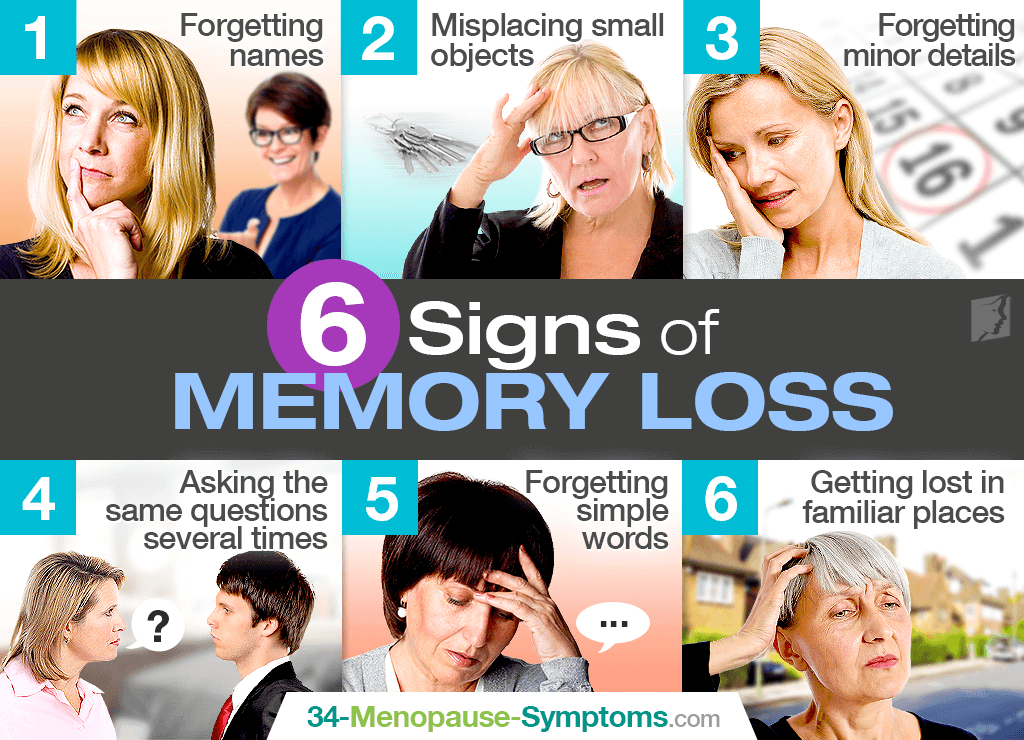As people age, they are more likely to begin forgetting things. While many women become anxious when they notice signs that their memory is changing, it may just be a normal result of aging or of hormonal imbalance during or after menopause. Knowing about the signs of memory loss - and which signs signify normal changes as well as which signs indicate something more severe - can help many women understand how their memory is changing. Read on to learn more about memory loss.
Forgetting Names
Many people understand the feeling of panic that happens when you encounter somebody with a familiar face, but you cannot recall their name. It happens to women of all ages, but this sign of memory loss is likely to become more frequent with age.
Misplacing Small Objects
Glasses, keys, and cell phones are all important items that tend to be carried around in pockets and purses, but they are very easy to lose. If you are not used to losing things, it can be disconcerting to realize that you have begun to misplace your belongings, but for many women, it is an early sign of the memory loss, which is a normal part of growing older.
Forgetting Minor Details
It may also be more likely for small things to slip your mind - for instance, forgetting to buy something specific at the grocery store or missing an unimportant meeting or appointment.
However, some signs may point towards a more severe and worrying type of memory loss. This memory loss may be dementia, amnesia, or another memory problem, but it is likely to require medical attention and intervention. The following are signs of severe memory loss.
Asking the Same Questions Several Times
If somebody asks the same questions several times over the course of a short conversation - especially if receiving the same answer more than once does not jog their memory - this is a sign of short-term memory loss that has become severe enough to require a consultation with a doctor.
Forgetting Simple Words
Everybody has experienced a time when they cannot recall the word they want to use in a certain situation, but when somebody begins to forget common nouns and other simple words, they are likely to be suffering from severe memory problems. Mixing up simple words is another sign of this problem.
Getting Lost in Familiar Places
If somebody begins to forget their way around a familiar neighborhood or can't remember the way to the grocery store, this indicates that there may be more wrong with their memory than simple aging.
Although losing your memory can be frustrating and often inconvenient, there are ways to manage the difficulties. For instance, having a designated place to keep your keys may make you less likely to have to search all over the house, and keeping a schedule or planner can allow you to mark down when you have meetings to remember. Several smartphone apps exist that can help with scheduling. For other ways to help deal with memory loss, check out 5 natural supplements for memory loss.
Sources
- Food and Drug Administration. (2010). Coping with Memory loss. Retrieved May 3, 2017, from http://www.fda.gov/forconsumers/consumerupdates/ucm107783.htm
- Mayo Clinic. (2014). Memory loss: When to seek help. Retrieved May 3, 2017, from http://www.mayoclinic.org/diseases-conditions/alzheimers-disease/in-depth/memory-loss/art-20046326?pg=1
- National Institutes of Health. (2015). Memory Loss. Retrieved May 3, 2017, from https://medlineplus.gov/ency/article/003257.htm



